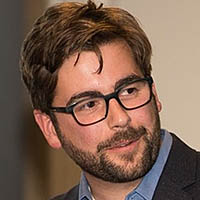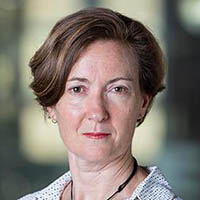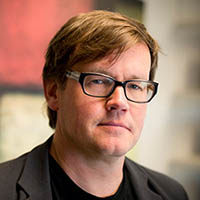The Andlinger Center of Energy and the Environment and Niskanen Center present
Carbon Pricing in the Real World
Speakers and panelists

Danny Cullenward

Jesse Jenkins
Jesse Jenkins is an assistant professor at Princeton University with a joint appointment in the Department of Mechanical and Aerospace Engineering and the Andlinger Center for Energy and Environment. He is also an affiliated faculty with the Center for Policy Research in Energy and Environment at the Woodrow Wilson School of Public and International Affairs and an associated faculty at the Princeton Environmental Institute. Jesse is a macro-scale energy systems engineer with a focus on the rapidly evolving electricity sector, including the transition to zero-carbon resources, the proliferation of distributed energy resources, and the role of electricity in economy-wide decarbonization. He leads the Princeton ZERO Lab – the Zero carbon Energy systems Research and Optimization Laboratory — which conducts research to improve decision-making to accelerate rapid, affordable, and effective transitions to net-zero carbon energy systems.
Jesse completed a Ph.D. in Engineering Systems (’18) and MS in Technology and Policy (’14) at the Massachusetts Institute of Technology and a BS in Computer and Information Science (’06) at the University of Oregon. He worked previously as a postdoctoral Environmental Fellow at the Harvard Kennedy School and the Harvard University Center for the Environment, a researcher at the MIT Energy Initiative, a research fellow at Argonne National Laboratory, the Director of Energy and Climate Policy at the Breakthrough Institute, and a Policy and Research Associate at Renewable Northwest.
Jesse has published peer-reviewed papers in the journals Joule, The Energy Journal, Economics of Energy and Environmental Policy, Applied Energy, Nuclear Technology, Energy Policy, and WIREs: Climate Change. His work has been supported by competitive fellowships from the National Science Foundation, MIT Energy Initiative, Martin Family Society for Fellows in Sustainability, and Harvard University Center for the Environment. Jesse has given seminars to executives at global electric utility and energy technology companies, presented his work to staff and commissioners of the Federal Energy Regulatory Commission and state-level regulators and policy makers across the country. He is also a member of the National Academies of Science, Engineering and Medicine “Committee on Accelerating Decarbonization in the UnitedStates: Technology, Policy, and Societal Dimensions,” and he has delivered invited testimony before the United States Senate Committee on Energy and Natural Resources and the United States House Select Committee on the Climate Crisis. His research is regularly featured in media outlets including the New York Times, Wall Street Journal, Washington Post, and National Public Radio.

Robert O. Keohane

Suzi Kerr

Joseph Majkut
Majkut is director of climate policy at the Niskanen Center. He is an expert in climate science, climate policy, and risk and uncertainty analysis for decision making. Before joining the Niskanen Center, he worked on climate change policy in Congress as a congressional science fellow, supported by the American Association for the Advancement of Science.
Majkut holds a Ph.D. from Princeton University (’14) in Atmospheric and Oceanic Sciences.

David Victor
Victor is a professor of industrial organization and innovation at the School of Global Policy and Strategy at UC, San Diego. He is a director of the campus-wide Deep Decarbonization Initiative, which focuses on real world strategies for bringing the world to nearly zero emissions of warming gases. Victor is also an adjunct professor in Climate, Atmospheric Science & Physical Oceanography at the Scripps Institution of Oceanography and a professor (by courtesy) in Mechanical and Aerospace Engineering. Prior to joining the faculty at UC San Diego, Victor was a professor at Stanford Law School where he taught energy and environmental law. He is also co-Chair of The Brookings Institution’s Initiative on Energy and Climate.
His research focuses on regulated industries and how regulation affects the operation of major energy markets and their impact on the climate. Victor authored “Global Warming Gridlock,” which explains why the world hasn’t made much diplomatic progress on the problem of climate change while also exploring new strategies that would be more effective. The book was recognized by The Economist as one of the best books of 2011.
Victor was a convening lead author for the Intergovernmental Panel on Climate Change (IPCC), a United Nations-sanctioned international body with 195 country members that won the Nobel Peace Prize in 2007. He is a member of the World Economic Forum’s Global Future Council on Energy, where his work focuses on the role of natural gas as a transition fuel to deep decarbonization as well as a member of the Council on Foreign Relations.
His Ph.D. is from the Massachusetts Institute of Technology and A.B. from Harvard University.